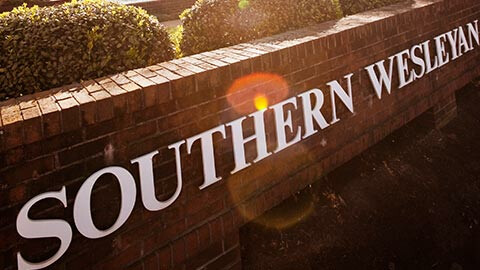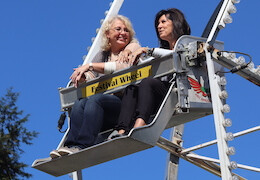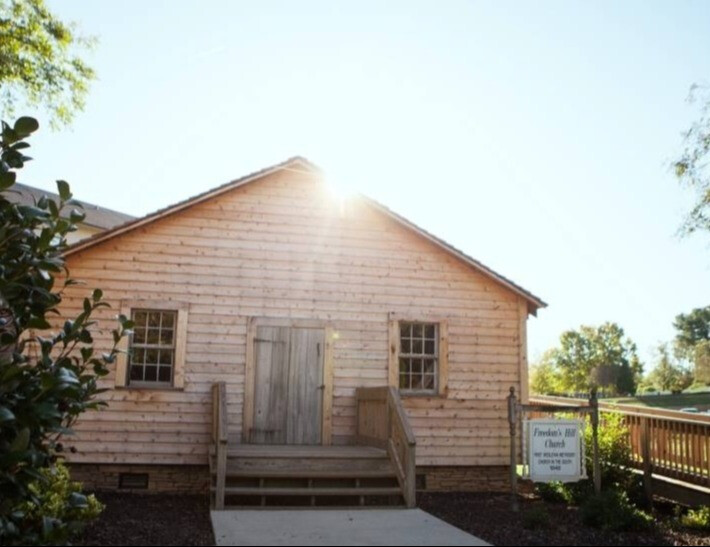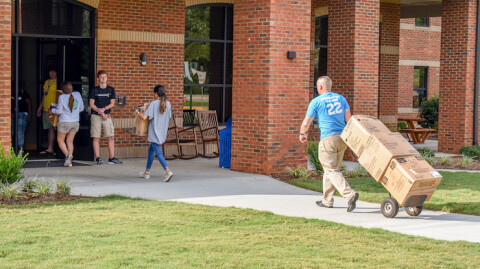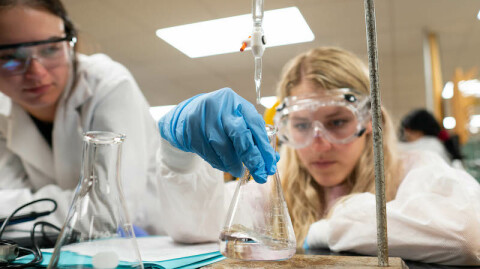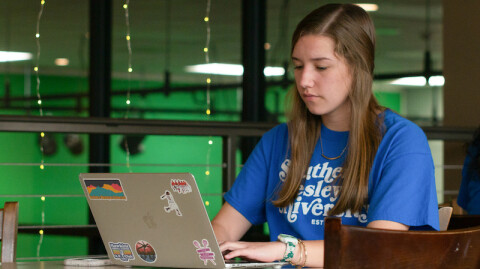Over the past few weeks, Freedom’s Hill Church has been crying out to me.
Every day that I go to my office on the campus of Southern Wesleyan University, I pass by Freedom’s Hill Church. Originally built in 1848 in Alamance County, North Carolina, it was the first Wesleyan Methodist Meeting House built below the Mason-Dixon line. It was built by abolitionists. It was moved to our campus and dedicated in 2001. It now serves as a chapel and a reminder of our heritage.
In 1843, abolitionist ministers withdrew from the Methodist Episcopal Church because they felt the church was too soft on the issue of slavery. They formed a new Wesleyan church with the express purpose of being free from “episcopacy and slavery.” In North Carolina, 40 anti-slavery adherents withdrew from the Methodist Episcopal Church and asked the new Wesleyans to send them a minister. At the annual conference in Ohio, the Wesleyan Church acknowledged their request.
The church felt it was too dangerous to appoint a minister, so they asked for a volunteer. After much prayer, Adam Crooks, 23 years-old, said, “I will go. Sustained by your prayers, and in the name of my Savior, I will go to North Carolina.” He met the waiting worshipers, and they built Freedom’s Hill.
Dr. Bob Black says, “It was called Freedom’s Hill because it stood for the freedom of the slave and sinner alike.” The members were harassed. More than once, Rev. Crooks was dragged from the pulpit and beaten. He was poisoned twice. The church was fired upon. The original door sits inside still giving its bullet-holes testimony.
I often think, that for The Wesleyan Church, this was our first physical statement, in the south, that “Black Lives Matter.”
It should not be our last.
These recent weeks demand our history, our voice, and our action. The holy life of the Christian requires both the voice of a prophet and the care of a shepherd. These are needed now more than ever.
The holy life of the Christian requires both the voice of a prophet and the care of a shepherd. These are needed now more than ever.
A regular part of the church’s litany is confession. We confess what we have done and what we have left undone. I ask the university community to join in confessing our sins with me. They are different for each of us. These are mine.
I confess to God and to you that, at times, I have had breath and remained silent, while some had words to say, but no breath. I confess that I get so wrapped up in my own issues, I often don’t have energy to care for others who are hurting and marginalized. I confess that I often think I know what is better for others instead of accepting their feelings. I ask God and you to forgive me, and, in that absolution, I will be a better person.
I need to listen more. That is hard for a preacher to say. In the past few days, I have reached out to students and former students to hear their stories. I ask that administrators, faculty, and staff take a posture of active listening to our colleagues and students. Create space and invite people in to it. We need to hear people’s story. To do that, we need to listen.
I need to make a difference. You need to make a difference. I cannot tell you, now, how I will work to make a difference because I need to listen, first. I ask you to hold me accountable and, as the under-shepherd of this university, to hold us all accountable. I want our best days to be ahead of us. Empowered by the Holy Spirit and working together, I believe we can make that happen.
Freedom’s Hill is crying out to me.
I cannot let her weep alone.
